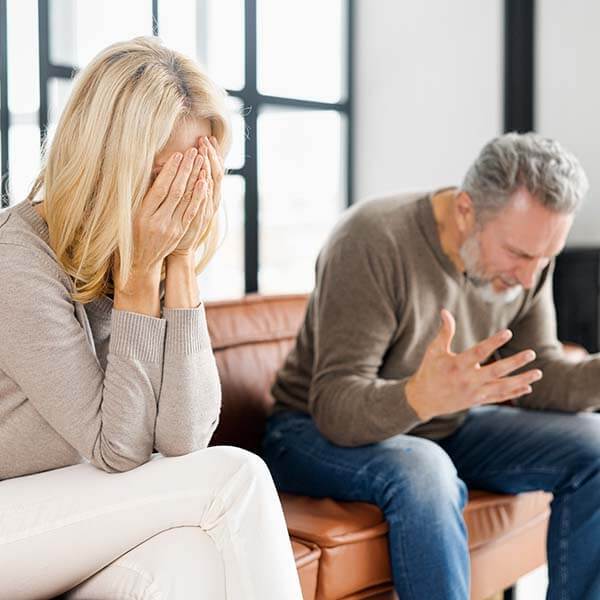
Menopause-related sexual changes are common. They may involve changes in desire, comfort, or response. These shifts can feel confusing—but they’re natural. If you're wondering how menopause affects your sexual health, you're not alone. Visit our DOXXES store on North Freeway / FM 1960 for supportive products designed to help.
What Are Menopause-Related Sexual Changes?
This term refers to changes in sexual health linked to menopause. These may include:
- Vaginal dryness or burning
- Lower libido
- Pain during sex
- Changes in how you experience arousal
Types include:
- Superficial: dryness and irritation
- Deep: pelvic pain during penetration
- Provoked: pain triggered by touch or movement
These issues are common during and after menopause, mostly due to hormone shifts.
Why Do These Changes Happen?
Psychological factors:
- Work or family stress
- Past trauma or fear of pain
- Emotional disconnection from your partner
Physical factors:
- Hormonal shifts (especially lower estrogen)
- Repeated urinary tract infections
- Tight pelvic floor muscles
- Thinner vaginal tissues (vaginal atrophy)
Often, both mind and body are involved.
Examples and How to Spot Triggers
Real-life examples:
- Vaginal dryness that causes friction
- Pain deep in the pelvis during sex
- Decreased interest in intimacy
- Sensitivity from tight clothes
How to identify triggers:
- Note when symptoms appear—before or after sex? At certain times of the day?
- Try different positions or lubricants to compare results
- Use gentle tools, like vibrators or moisturizers, to see what brings relief
Who Is Affected?
Menopause-related changes can affect people of all genders and orientations.
- Women may notice dryness, irritation, or mood changes.
- Men may experience erectile or arousal challenges at the same life stage.
A common question is: Can you get pregnant after menopause?
No—menopause marks the end of fertility, but that doesn’t mean the end of sexual wellness.
How a Sex Therapist Can Help
- Talk through your history and concerns like “painful abdomen after intercourse”
- Screen for mental health concerns like anxiety or sadness
- Help you and your partner talk about intimacy
- Offer guidance on tools, routines, or exercises
Treatment and Coping Options
You don’t have to suffer in silence. Help is available.
- Counseling or therapy: Work through stress, fears, and relationship issues
- Pelvic floor therapy: Learn exercises to ease pain or relax tense muscles
- Topical treatments: Use hormone creams or soothing gels as prescribed
- Lubricants and moisturizers: Apply daily or during intimacy for comfort

How DOXXES.LOVE Can Help
At DOXXES, we offer:
- Water-based lubricants to ease dryness
- Pelvic floor tools to support strength and comfort
- Gentle vibrators to boost arousal and blood flow
- Prostate massagers for deeper relaxation
Each product includes clear instructions for safe, clean use. Pairing these items with therapy can improve your experience and help you reconnect with your body.
Talking to Your Partner About These Changes
- Using "I" statements: “I feel discomfort when we’re intimate.”
- Choosing a quiet, calm moment to talk
- Exploring books, articles, or videos together
- Reassuring your partner that this is a shared journey
- Reaching out for help if the stress or pain increases
Visit Our DOXXES Store on North Freeway / FM 1960
Our store is private, respectful, and welcoming. You’ll find products, guidance, and support in a relaxed setting. Our trained staff can help you choose what’s best for your needs.
Conclusion
Menopause brings changes—but with the right tools, open conversation, and self-care, you can feel confident and comfortable again. Visit DOXXES on North Freeway / FM 1960 to explore products and resources tailored to your needs.
FAQs - Erectile Dysfunction
- How does menopause affect sexual health?
It can lead to dryness, tissue thinning, lower interest in sex, and pain during intimacy. - Can I get treatment for dryness at North Freeway / FM 1960
Yes—we offer lubricants, hormone options, and soothing therapies. - What causes these changes?
Lower estrogen levels affect the vaginal tissues and moisture balance. - Is painful sex after menopause common?
Yes—but it’s treatable with topical therapy, pelvic floor work, and more. - How can partners help during this time?
With patience, communication, and trying new ways of connecting. - Do all women lose libido after menopause?
No—some feel even more free without concerns about pregnancy or periods. - Is hormone therapy safe?
It depends. We assess your medical history to find the safest option. - Are there non-hormonal choices?
Yes—lubricants, moisturizers, physical therapy, and lifestyle changes can help. - Can I speak to someone about this at North Freeway / FM 1960
Yes—our team provides private, respectful guidance and care. - Will these symptoms go away?
Some improve over time, while others may need long-term support.
